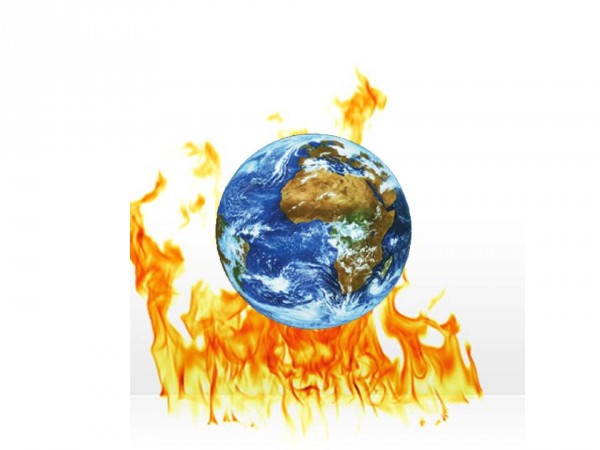Five Foreign Policy Problems the Next President Must Face


The 2012 campaign has largely been about the state of the economy and Republicans and Democrats trading body blows over partisan politics. Despite an ongoing war in Afghanistan and clamoring calls for intervention in Syria's increasingly nasty civil war, the focus of candidates Barack Obama and Governor Mitt Romney on foreign policy and defense has been light. This may be smart politics in a tight election contest where every misstep hurts and voters are concerned about jobs and pocketbook issues, but it also represents a serious case of whistling past the national security graveyard.
Unfortunately, the rest of the world may not be at the top of our headlines but they are not going away. The next president and his team will face a foreign policy agenda simmering with serious problems, any of which could boil over in crisis in the next four years, derailing the new president's program at home, and sapping our resources abroad. Here are five potential "category 5" threats to American interests the next president will face:
5. NORTH KOREA - UNSTABLE, NUCLEAR ARMED AND ALWAYS DANGEROUS
North Korea made the news this year with its hurried transfer of power, complete with savage purges in the military leadership, to 28-year-old "supreme leader" Kim Jong-Eun. The grandson of North Korea's founder Kim Il-Sung and son of the mysterious and reclusive, Kim Jong-Il, the world's youngest dictator presides over what experts term "the Kim Family Regime", a hybrid of Stalinist totalitarianism and a vicious criminal mafia. The regime, which systematically starves its' people to support its nuclear weapons program and immense military, engages in all forms of black market activities including drugs, counterfeiting and WMD proliferation, but requires outside aid to sustain itself. During the Cold War, Pyongyang played Moscow against Beijing to get subsidies, but since 1991, it has extorted aid programs from Washington and Seoul while continuing to barter with China. With China tightening the screws to push north Korea to reform it's moribund economy, it is almost certain that North Korea will respond by creating a new confrontation over nuclear weapons testing in hopes of forcing America and South Korea back to the bargaining table and a new round of concessions (bribes). The always outside possibility that the Kim Family Regime will collapse is unlikely, but if it happened, the US and the ROK would be confronted with millions of semi-starved, North Korean refugees in a humanitarian disaster of epochal proportions.
4. NO ESCAPE FROM AFPAK
The United States is formallyset to end major combat operations in Afghanistan in 2014 but continue assisting the Afghan government of Hamid Karzai against the Taliban until 2024 with training and military and economic aid. In other words, replicate the feat we managed in Iraq of pulling out and leaving behind a semi-functional sovereign government. Frankly, Ron Paul has a better shot of being elected President this November than this agreement does of lasting through 2013. For starters, the Taliban has not been militarily defeated and retains strong Pakistani support, including safe havens, in their insurgency to topple Karzai and replace the Afghan government with a "pure" Islamic state. Aside from Karzai's regime being phenomenally corrupt, largely hated by the populace and unable to significantly reform, Afghanistan's tiny GDP of $ 29 billion represents mostly foreign aid and local spending by NATO and Western contractors. Afghanistan's real economy, which is something closer to one-tenth that size, cannot pay for the Afghan National Army and police forces we have trained, maintain basic equipment like jeeps, trucks and helicopters or provide Afghan soldiers with sufficient ammunition. The next president will be faced with a choice in late 2013 to abrogate the agreement and stay in Afghanistan for years, forge a diplomatic deal with Pakistan or withdraw in defeat.
3. THE NARCO-CARTELIZATION OF LATIN AMERICA
The recent, much heralded "peace agreement" in El Salvador which reduced a sky high homicide rate from gang warfare is a white-flag harbinger of things to come where weak, failing or failed states in Latin America "hollow out" by legitimizing the armed power of street gangs and narco-cartels with political concessions. The other states in Central America face similar gang problems, while Colombia faces renewed paramilitary and guerrilla activity (mostly fighting over the drug trade) but Mexico takes the destabilization prize with a full-blown criminal insurgency that has killed roughly 50,000 Mexican citizens. The narco-cartels in Mexico are the best organized, militarily, politically and culturally sophisticated insurgents in the world, second only to Hezbollah; and unlike the Lebanese terror group, the narco-cartels are self-financing to the tune of hundreds of billions of dollars. They are also as regularly merciless and ghoulishly cruel as Musab al-Zarqawi's defunct beheading al Qaida francise was in Iraq and some Mexican cartels are further motivated by adherence to a quasi-religious death cult. The narco-cartel situation in Mexico and Latin America has been downplayed by two successive administrations, with officials prohibiting the use of the terms "insurgency" or "failed state" in discussing Mexico until recently, but a Mexican state in partnership with the narco-cartels on our undefended 1,969 mile border would represent a clear and present danger to the United States. Signs are that we are finally starting to take this seriously.
2. THE SUNNI-SHIA REGIONAL WAR
In the mid-2000's, Brookings Institute scholar Vali Nasr predicted that a "Shia Revival" would re-shape the middle east and the civil war in Syria is an example of escalation between revolutionary Sunni extremists backed by Saudi Arabia and Qatar and the hardline Shia clerical regime in Iran, which supports the Alawite-Baathist dictatorship of Bashar Assad. Shia, who constitute approximately 10 % of the world's Muslims are often considered apostates or heretics by radical Sunni extremist groups like al Qaida, but are a majority of the population of Iran and Iraq and constitute a significant minority in Saudi Arabia and the Gulf states. This is a contest that goes beyond Syria with the underlying conflict being a struggle both regional dominance in the Middle-East and over the status of Shiism within world Islam, threatening to overturn centuries of Sunni Muslim supremacy in Islamic affairs. This toxic combination of nation-state-rivalry and religious militancy has the potential to morph the conflict into the Islamic equivalent of the Thirty Year's War, in a region that is home to the bulk of the world's currently productive oil fields.
1. COLLAPSE OF THE EURO
Ironically, the greatest threat to American well-being does not come from terrorists, civil wars, dictators or insurgencies but from the boring and technocratic world of international monetary policy. Once touted as the replacement for the dollar as the global reserve currency, the Euro has fallen on such hard times due to the EU debt crisis that some are terming the Euro a "zombie currency":
....Imagine for example that a company in Alabama had to pay three times as much to borrow as one in Maine – even though it was in the same business and had the same credit record but just happened to be unfortunate enough to be in the wrong part of the country. Or that a company in Boston couldn't import auto-mobiles in dollars because the supplier in Detroit wouldn't accept their cash? Or that people in Texas were buying houses in California to protect themselves from the potential break-up of the currency union? Very soon, the economy of the United States would cease to function. And we would start to wonder whether the dollar was still a currency in any meaningful sense. But that is precisely the situation in the euro-zone. The euro still has the notes and coins. But in almost every other sense it is no longer really a currency.
A collapse of the Euro will have unpredictable long-term global effects. While the obvious result would be to artificially strengthen the US dollar the uncertainty of so momentous an event could undermine confidence generally in the security of floating exchange of fiat currency, spurring enormous demand for commodities, speculative ventures and other hedges against fiscal collapse. The global economic system would become more volatile and careen toward depression as demand for US manufactured goods (purchased only in expensive American dollars) slackened. Creditors, including America's foreign creditors holding US treasuries like China, would benefit, while debtors, including the USG, would find themselves in a much worse position. A recklessly inflationary policy would be fiscally and politically tempting in Washington, further undermining the global trading system when the world's reserve currency starts to be run off of a printing press in imitation of the Weimar Republic.
It may be that the United States will succeed, as it often has done, in muddling through all of these problems on the strengths of its great advantages. The advantage of being the lone superpower with the world's largest economy is that a crisis that is an existential threat for another country is merely just another policy headache. But every system has a tipping point from which recovery is extremely difficult. If enough of these scenarios come to pass, the winner next November will end his presidency envying his opponent.



